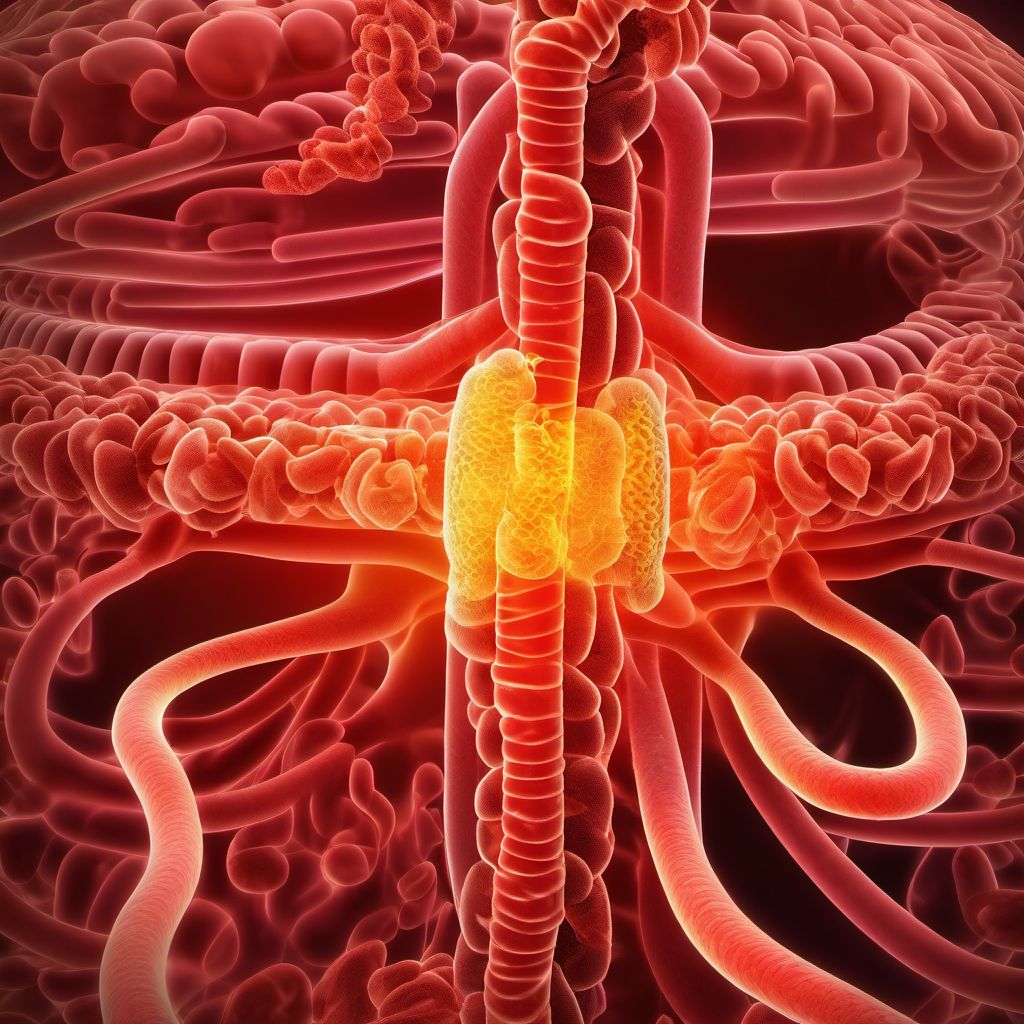
Tuberculosis of intestines, peritoneum and mesenteric glands Save
ICD-10 code: A18.3
Chapter: Certain infectious and parasitic diseases
Tuberculosis of intestines, peritoneum and mesenteric glands
Tuberculosis is a bacterial infection caused by Mycobacterium tuberculosis. While it is most commonly associated with the lungs, tuberculosis can also affect other parts of the body, including the intestines, peritoneum, and mesenteric glands.
Intestinal tuberculosis is a form of extrapulmonary tuberculosis that affects the intestines. It can cause symptoms such as abdominal pain, diarrhea, and weight loss. In severe cases, it can lead to complications such as intestinal obstruction or perforation.
Peritoneal tuberculosis is a type of tuberculosis that affects the peritoneum, which is the membrane that lines the abdominal cavity. Symptoms can include abdominal pain, ascites (fluid buildup in the abdomen), and weight loss. In some cases, peritoneal tuberculosis can also affect the liver or spleen.
Mesenteric gland tuberculosis is a form of tuberculosis that affects the mesenteric glands, which are lymph nodes located in the abdomen. Symptoms can include abdominal pain, fever, and weight loss. In some cases, mesenteric gland tuberculosis can also cause intestinal obstruction.
Diagnosing tuberculosis of the intestines, peritoneum, and mesenteric glands can be challenging, as the symptoms can be similar to those of other conditions. Tests such as a tuberculin skin test, chest x-rays, and CT scans can help with diagnosis. Treatment typically involves a combination of antibiotics for a period of several months.
- Antibiotics are the cornerstone of treatment for tuberculosis of the intestines, peritoneum, and mesenteric glands.
- In severe cases, surgery may be necessary to treat complications such as intestinal obstruction or perforation.
- Prevention is key in avoiding tuberculosis. This includes getting vaccinated, practicing good hygiene, and avoiding contact with those who may have tuberculosis.
Overall, tuberculosis of the intestines, peritoneum, and mesenteric glands is a serious condition that requires prompt diagnosis and treatment. With proper care, however, most people are able to recover fully.